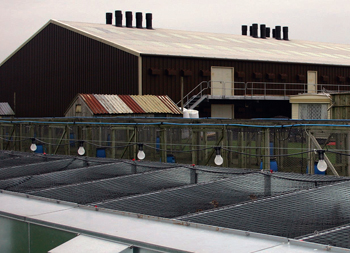Shooting urged to respond to DEFRAs game bird code

Shooting interests urged to respond to DEFRAs game bird code.
The long-awaited draft Code of Practice for the Welfare of Game birds Reared for Sporting Purposes was unveiled last week when DEFRA launched a public consultation on 24 November.
However, despite numerous stakeholder meetings and recommendations from the Farm Animal Welfare Council (FAWC), DEFRA has failed to reach a decision on whether or not to ban the use of raised laying cages for producing game bird eggs in England.
The government body plans to issue the finalised code in April 2010.
Though the code is not legally binding, failure to abide by its requirements could be relied on to establish liability for an offence under the welfare provisions of the 2006 Animal Welfare Act.
One of the most contentious areas of the code is the issue of raised laying cages.
Rather than taking a definitive stance on whether or not to ban their use, DEFRA is now seeking public views on three options: (1) retaining the status quo; (2) requiring all raised units to be enriched and banning barren cages; or (3) banning cages altogether.
The last option would include a ban on traditional partridge boxes.
Though the shooting industry has welcomed the code, key organisations are backing different options concerning raised laying cages.
BASC is supporting option 3 but with the added proviso of keeping traditional partridge boxes.
BASC?s director of communications, Christopher Graffius, told Shooting Times magazine that BASC has spoken out against the use of raised laying cages since 2005: ?It is important that everyone takes the opportunity to be rid of unacceptably confined cages. They tarnish the image of shooting and offer almost nothing in return. It is now time to demonstrate clearly that the shooting community will not tolerate this lowering of standards.?
Mr Graffius added: ?The pursuit of cost-cutting over welfare by a minority must not be allowed to undermine game shooting and the overwhelming majority of game rearers who use traditional pheasant laying pens.?
The Game Farmers? Association (GFA), the Game & Wildlife Conservation Trust, the Countryside Alliance and FAWC support option 2.
The GFA?s chairman, Jonathan Crow, said: ?Not only would a total cage ban mean an end to virtually all partridge egg production in the UK, it would also export yet more pheasant egg production to unenriched cage systems overseas. None of us want to see that.?
Mr Crow added: ?The draft code is an excellent document. The code?s approval by Parliament next year in its current form would confirm that the industry has high standards and the legitimacy of government recognition.?
Ray Holden of HyFly Game Hatcheries, in Lancashire, keeps 3,000 pheasants in raised laying cages.
He told said DEFRA was right to offer consultation respondents different options about their future use: ?Raised laying cages give game farmers in England the opportunity to compete with foreign imports. Without them, the English game farming industry would be in danger of collapsing. Some shooters condemn the use of raised laying cages, but I have nothing to be ashamed of. There is an open invitation, by appointment, to anyone who would like to see them in use.?
To respond visit www.defra.gov.uk/corporate/consult/gamebirds/index.htm








